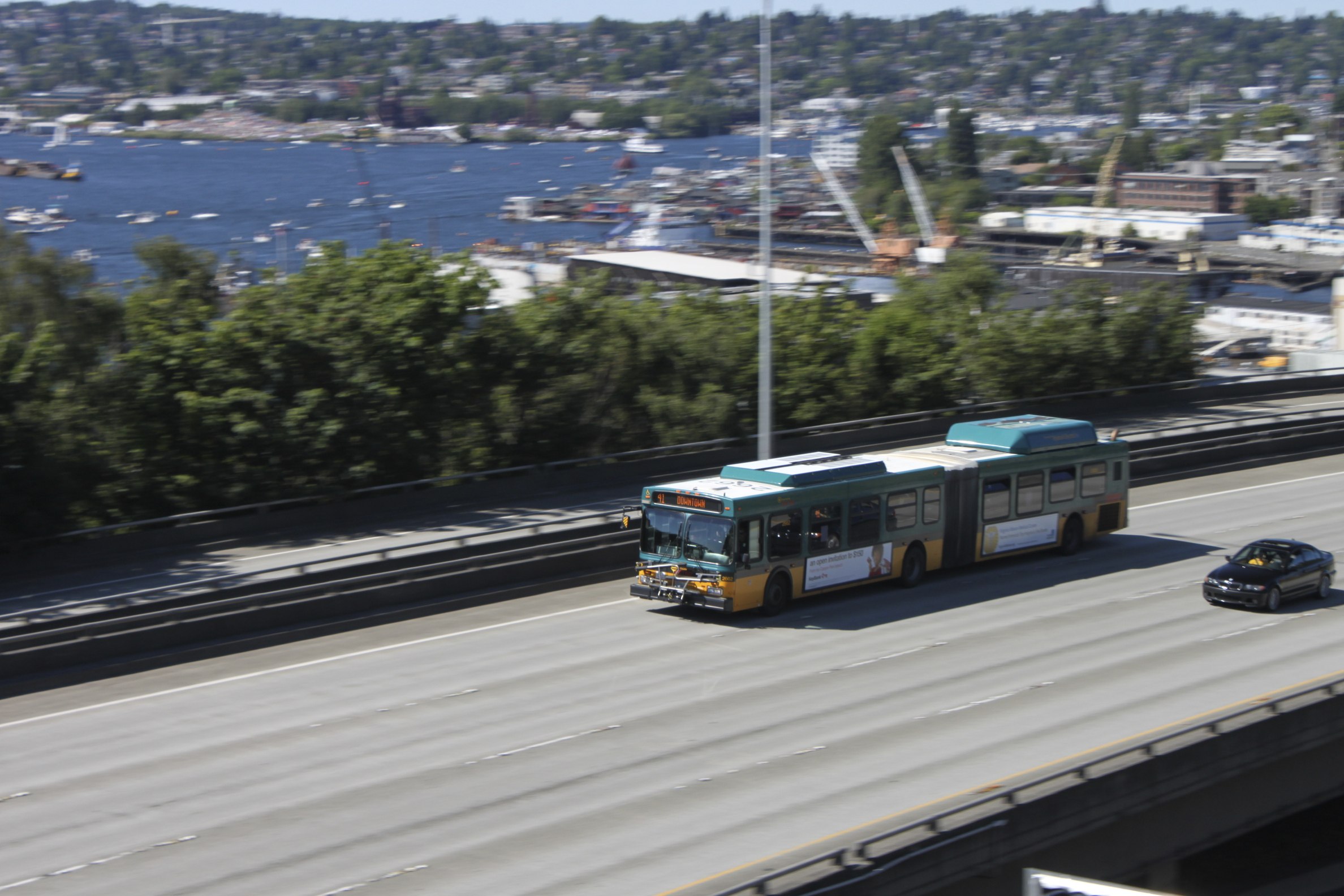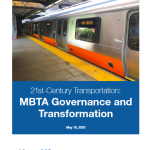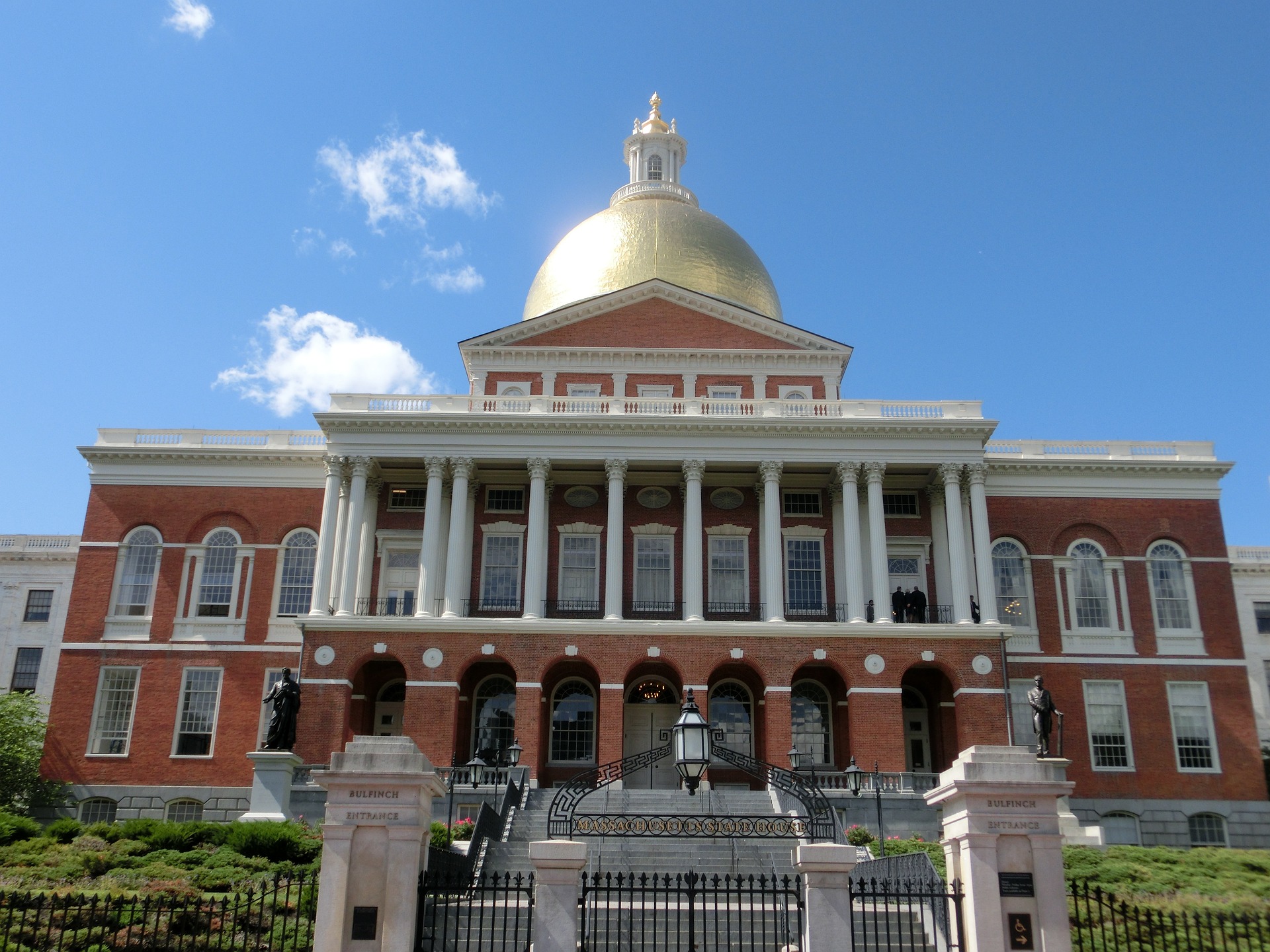
21st Century Transportation: MBTA Governance and Transformation
With Governor Baker’s Fiscal and Management Control Board set to expire in June, a coalition of transportation advocacy groups released a report that details recommendations for future oversight of the MBTA. The report offers a path forward that will better serve riders and create a transportation system for the future.
MASSPIRG

In the winter of 2015, record snowfalls plunged the Massachusetts Bay Transportation Authority (MBTA) into acute crisis. Day after day, riders were subject to long delays, often left waiting outside in freezing temperatures for their bus or train — and too often, that bus or train never came at all. It would be weeks before riders saw the MBTA return to any level of typical, reliable service.
In response to these failures, Governor Baker convened a special panel to review the MBTA’s operations and finances. Following the panel’s report, the governor and legislature established an interim governance board for the MBTA, dubbed the Fiscal and Management Control Board (Control Board or FMCB). Its five members were tasked with ensuring that the failures of the winter of 2015 were not repeated and that riders would not be, literally, left out in the cold again.
Initially scheduled to sunset in June 2018, the Control Board was extended for two more years and will now dissolve in June 2020. Despite initial skepticism by some legislators and transportation advocates about its ability to accomplish the necessary transition to reliable service, the Control Board has made significant progress in improving operations. It has made smart investments in MBTA infrastructure, offered unprecedented transparency into MBTA operations and capital needs, and provided a dedicated venue for the public to attend its meetings and speak up about issues and concerns.
Now, as the legislature contemplates the MBTA’s future governance structure, Conservation Law Foundation, MASSPIRG, the MBTA Advisory Board, and Transportation for Massachusetts offer recommendations for the successor board to build on the Control Board’s successes while achieving a 21st-century rider-focused transportation system.
Our future transit system must be safe, reliable, affordable, and accessible to:
- motivate people to shift out of their single-occupancy cars and trucks and onto transit;
- promote transportation justice by better serving all riders; and
- cut climate-damaging emissions and air pollution that harms public health.
Conservation Law Foundation, MASSPIRG, the MBTA Advisory Board, and Transportation for Massachusetts recommend the following structure for the successor board (2021+ Board), to be codified in law, which should be in effect before the sunsetting of the Control Board. Throughout this report, we refer to the successor board as the 2021+ Board because we recommend that it begin operating to coincide with the start of the MBTA’s 2021 fiscal year on July 1, 2020.
- Scope of work: The 2021+ Board should expand the Control Board’s scope of work to implement better and safer service now and plan for the service we will need over the next few decades. It should be empowered to balance short-term and long-term needs, ensure that daily system operations are optimized, and maintain a focus on future transit needs. Specifically, the legislative mandate of the 2021+ Board should be to: ensure rider and MBTA employee safety; provide guidance and benchmarks for operational efficiency and transit growth; determine capital and operating revenues needed to manage a 21st-century transportation system; reduce greenhouse gas emissions associated with MBTA operations; improve service for all riders; expand access and reliability for riders dependent upon public transit; assess infrastructure that is vulnerable to climate change and implement resiliency improvements; and oversee and expedite the completion of capital projects resulting in a more reliable transit system for all riders.
- Oversight of General Manager: The 2021+ Board should be solely responsible for the hiring and firing of the MBTA general manager so that the position is directly accountable to riders, not solely to the Massachusetts Department of Transportation (MassDOT) secretary.
- Independence: The 2021+ Board should be independent of the MassDOT Board of Directors (MassDOT Board) and solely responsible for the issuance of MBTA debt, budgeting, and capital spending oversight. It also should be responsible for overseeing daily MBTA operations and for issuing the debt necessary to plan, develop, and execute major capital projects designed to improve rider experience in the future.
- Relationship to MassDOT: Two members of the 2021+ Board should be eligible to serve on the MassDOT Board to ensure coordination between the MassDOT and MBTA governing boards.
- Membership: The 2021+ Board should be independent1 and geographically diverse. It should exclude employees of MassDOT and MBTA. The 2021+ Board should be composed of riders and individuals with experience in at least one of the following: management, financial expertise, engineering, transportation planning, transportation operations, transportation safety oversight, government and public affairs, environmental justice, labor relations, planning, and economic and community development.
- Compensation: Members should qualify for an annual stipend for service not to exceed $15,000. This amount will facilitate participation of board members from environmental justice populations, among other communities.
- Size: The 2021+ Board should comprise seven members, two more members than the Control Board, to promote a diverse set of member experiences and perspectives.
- Meeting Frequency: The 2021+ Board should meet at least 24 times annually and ensure robust public comment opportunities, including options for people to participate beyond standard business hours. This is less than the current requirement for the Control Board to meet 36 times annually.
- Term: Upon appointment to the 2021+ Board, four members should serve terms concurrent with the governor. To ensure continuity, the remaining three 2021+ Board members should continue to serve on the board for at least two years beyond the expiration of the current governor’s term. This will ensure that the governor in 2023 can appoint four additional board members to serve.
Only with these changes to the governing board can the MBTA become the transit service that riders deserve — one that motivates people onto public transit rather than pushing them into their cars; one that ensures those dependent on public transit have easy access to affordable, on-time service; and one that cuts carbon and air pollution, especially for communities already overburdened by toxic emissions.
Topics
Find Out More


Green schools guide

MASSPIRG’s 2023-2024 Legislative Priorities

